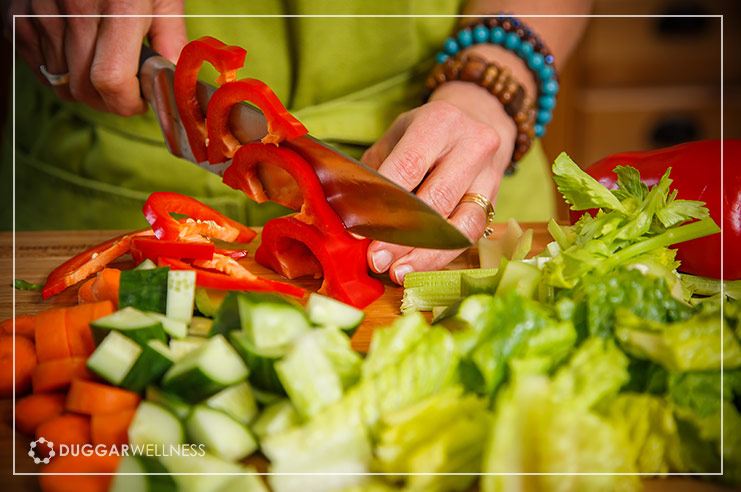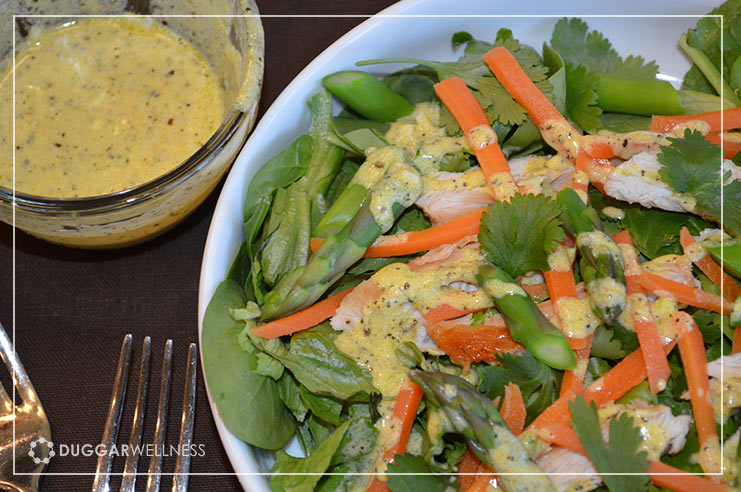“What should I eat?” That is an interesting question, a question that I get often when I am helping people recognize how vital their diet is. There are so many choices out there. The supermarkets are loaded with what seems at times like miles and miles of food choices. My answer is this: “Eat food. Real, whole food.” Our western diet is generally one of processed and refined foods that include additives and chemicals that our body doesn’t know how to process, eliminate or use to regenerate. Because of this, we are subject to a variety of diseases like obesity, cardiovascular diseases, diabetes and cancer. These diseases are directly related to the foods we put into our body. In fact the latest scientific research on epigenetics proves that what we eat determines our probability of developing disease more than hereditary factors.
Do you need to make some changes to your diet but you’re having a hard time getting started? Are you torn between the research that is telling you to be a vegetarian, eat a Paleo diet, eat raw foods, go gluten free, and on and on. There are benefits to all of these types of diets the question is “How do you know what is best for you?” My answer is start with Real Whole Food and then learn to what your body needs by listening to the signals it send you.
Set Yourself Up for Success
Take small manageable steps rather than one big drastic changes. Approach these small steps with commitment, decide why you want to make these changes. Ask yourself, “If I make these changes then I can. . . “ We are more committed and motivated to change if there is a purpose.
Simplify Focus on finding foods you love and easy recipes that incorporate fresh real food ingredients. Gradually, your diet will become healthier and more delicious.
Start Slow Make changes to your eating habits over time. Trying to make your diet healthy overnight isn’t realistic. Changing everything at once usually leads to feelings of overwhelm or giving up on your new eating plan.
Involve Others Include all the members of your family, even extended family. When people know you’re making changes and why you’re doing it they will be more likely to accept the changes and usually do their best to offer support.
Every Change Matters Any change you make toward improvement matters. You don’t have to be perfect right now! Don’t let your missteps derail you. Remind yourself that every healthy food choice is building health not tearing it down.
7 Days to Change Your Life
Would you believe me if I told you that in 7 days you could change your life in a way that would bring more vitality ( I love that word! It means; the state of being strong and active, the power giving continuance of life.) Follow these 7 suggestions, adding one each day and in 1 week you will see how easy this change can be!
Day 1: Real Hydration
Today focus on water. Drink water! Water makes up about 70% of you. Your cells, tissues and organs need water to function properly. You need water to digest, cleanse and eliminate. You need to re-hydrate after, sweating, crying, breathing and producing saliva. Everyone should aim for 1 quart of water to every 50 lbs. of body weight. You can even eat water dense foods like cucumbers, watermelon, celery, apples, Romaine lettuce and citrus.
Day 2: Veggies and Fruit
Eat veggies and fruit, especially in that order. We should have 9-11 servings every day. Try eating 2 servings with every meal this week. Veggies can be eaten in unlimited amounts during the day. Limit yourself to 2-3 servings of fruit per day, too much sugar, even natural fruit sugar, can be too much for your body to handle. Veggies and fruits give us vitamins, minerals, fiber and disease fighting phytonutrients. Eat a rainbow today!
Day 3: Try Something New
Find a new whole real food that you have never tried before and give it a try! A fun place to try new foods is at the farmer’s market, there are always samples. Try at least one new recipe each week. Involve the family in food preparation, if they make it they will usually want to taste it too!
Day 4: Eat Real Fat
Replace the hydrogenated, trans-fat filled refined oils that might be in your pantry with real healthy fats. Use coconut oil for baking and cooking anything over medium heat. Use olive oil for salad dressings and low heat cooking. Include raw nuts and seeds in your diet. Healthy fats are essential to nourish your brain, heart and every cell in your body.
Day 5: Get Rid of Refined Sweeteners
It’s not what you eat some of the time, but what you eat most of the time that makes a difference. The average American consumes an average of 140 pounds of sugar per year. Why would anyone eat that much sugar? Well, maybe they don’t realize their eating that much. Refined sweeteners are addictive and deplete our body of vital minerals and enzymes. The good news . . . when you feed your body whole real food it will stop craving refined sweeteners.
Day 6: Proper Portions
Use smaller plates and bowls because your entire meal should be only 2-4 handfuls of food. Don’t eat until you feel full or stuffed. Take your time, wait and listen for your body to send you signals. Save any left-overs to make preparing lunch for the next day easy!
Day 7: Five ingredients or less
When you are purchasing food from the store be sure it contains no more than 5 ingredients and that you can pronounce them. Foods made from scratch in your own kitchen may have more than 5 ingredients, but you know what those are and probably where they came from.
Now repeat!
Try these recipes to help make these changes simple and delicious.
Super Power Porridge
Try this hearty breakfast porridge, loaded with protein and essential fats.
Curried Chicken Salad
I crave this salad often, it’s super satisfying and loaded with flavor.
Zesty Beans and Rice
Serve as a side dish or as a entree. Add some avocado on the side for the perfect combination.
 160 N Main, Bountiful, UT 84010
160 N Main, Bountiful, UT 84010  801-677-7878
801-677-7878



